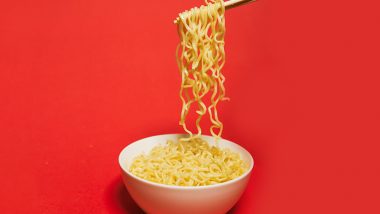The year 2019 hasn’t kicked off on the right note for Nestle India. Just when the food and beverage company thought it had seen the last of the lead controversy three years ago, the Supreme Court revived the Rs 640-crore class action suit, asking the company a pertinent question – “why should children have Maggi noodles with lead?” To recall, the Food Safety Standards and Safety Authority of India (FSSAI) had banned Maggi in June 2015 after there were reports of excessive monosodium glutamate (MSG) and lead in the instant noodles. Now with the reopening of the suit and a ban in the offing, people are torn between their love for their favourite snack and concerns for their own health. Hard-core Maggi lovers often joke that they don’t really mind the chemicals in the noodles. Some argue that lead and MSG are naturally-occurring components in food and that banning Maggi on that basis alone would be unfair. But here’s what lead and MSG in your food would mean for your health.
Is MSG in Maggi Safe?
MSG is a water-soluble salt of glutamate. It’s a non-essential amino acid, which is naturally created in your body and is present in most foods with proteins. MSG is used as a flavouring agent widely in Chinese cuisine and prized for its umami taste.
That being said, MSG had received a bad rap over the years when people started complaining of a headache and dizziness after eating at Chinese restaurants. The bunch of symptoms came to be known as “Chinese Restaurant Syndrome.” Over the years, MSG has been associated with obesity, metabolic disorders, neurotoxic effects, damages to the reproductive system, etc.
Maggi masala packets read: “No added MSG.” So is FSSAI making a false allegation? Not quite. Maggi masala contains traces of MSG due to the hydrolysed peanut protein, wheat flour and onion powder in which the glutamate salt occurs naturally.

Ranjani Raman, founder, Nutrition Tattva says: “MSG is something definitely not the food we are used to genetically. It is not aligned with our genetic makeup. So it won’t suit us in the long run. It affects the brain and nervous system, especially in kids whose brains are still developing. And glutamic acid is something that is naturally produced in the body, so we don’t need to source it through food.”
While MSG does occur naturally in food, synthetically added ones are never recommended.
How Does Lead End Up in Maggi?
Lead toxicity is known as an environmental disease and it affects the young more profoundly than the adults since their tissues are softer. Long-term exposure to lead can impair the nervous system and cognitive performance, leading to behavioural problems, learning deficits and lowered IQ. Anaemia, infertility, brain and kidney damage, miscarriage, blood disorders and cancer are the other health problems associated with lead toxicity.
So are food companies deliberately adding lead into your food? It’s not as straightforward as it seems. Lead ends up in the human body through consumption of contaminated food and water. Biochemist Thuppil Venkatesh who has been researching lead contamination in foods for over three decades told Huffington Post India that there are multiple ways through which lead ends up in Maggi and it’s not necessarily Nestlé’s doing.
It could be through the plastic covering, the colouring agents in the masala packet, the machinery used in the manufacture of the noodles and even the water used to wash the flour.
Maximum daily intake of lead in the human body should be not more than 1.0 μg/g. While Nestle doesn’t contest the allegations that Maggi contains lead, it does stress on the fact that it’s within the permissible limits. But that’s cold comfort.
“There are households where people survive on multiple packs of Maggi a day. I know of people who eat it four to five times a week even if the per packet levels of lead is within the safe limit,” says Ranjani. And that’s not all. Consuming even safe levels of lead at 1.0 μg/g every day can be hazardous on a long-term basis.
So do we do away with Maggie for good? You don’t have to. “Moderation is best. But in any case, it's always best to avoid processed foods, ” says Ranjani. A small amount of lead or MSG won’t do you much harm. You can enjoy your favourite treat as long as you limit it to one packet a month.
(The above story first appeared on LatestLY on Jan 04, 2019 04:25 PM IST. For more news and updates on politics, world, sports, entertainment and lifestyle, log on to our website latestly.com).













 Quickly
Quickly





















